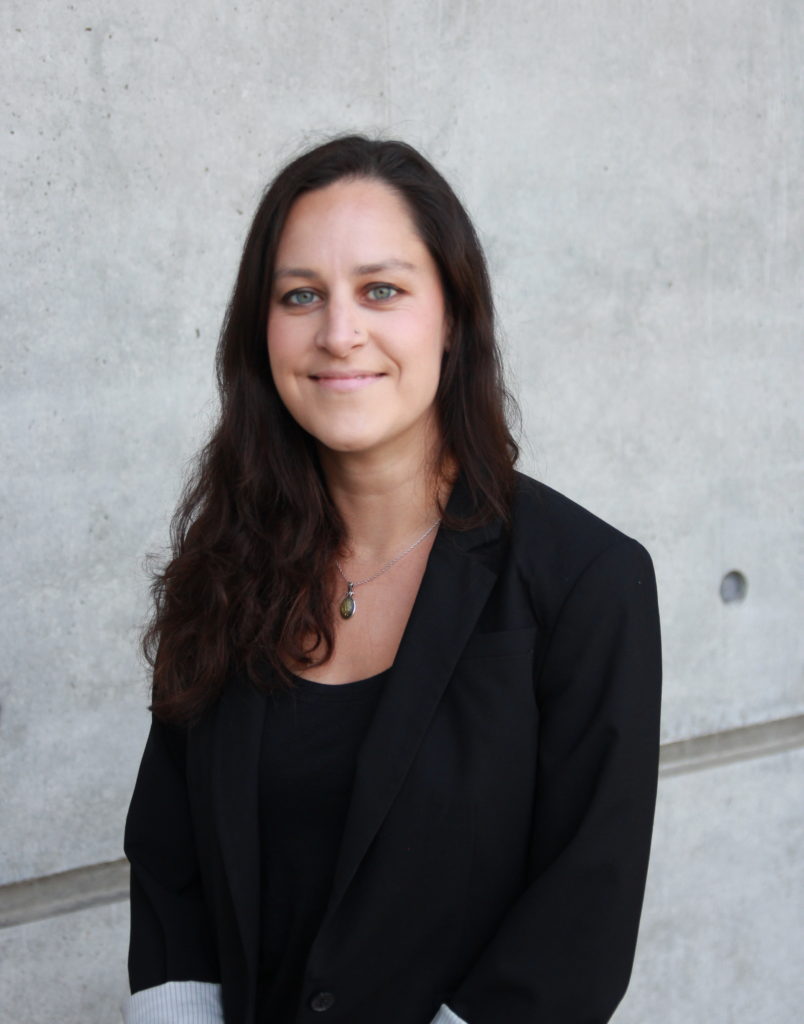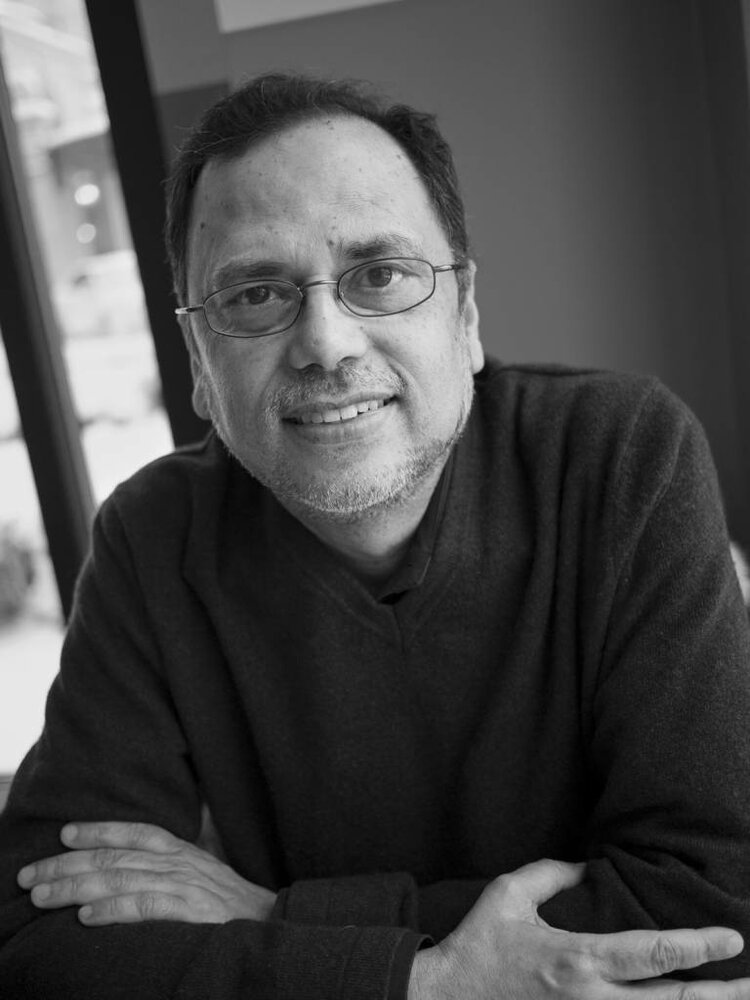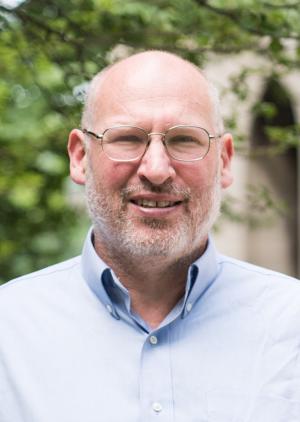
University of Chicago, PhD '72
BIOGRAPHY
Ron Inden investigates Indian class formations in relation to changes in world ruling classes and the ways in which people have tried to articulate these changes with intellectual practices and national and ethnic "identities" in the twentieth century. He is particularly interested in people's efforts to construct paradises or utopias on earth in and beside their everyday lives. These involve practices ranging from "rituals" in medieval or traditional societies to the "media" in modern ones and, especially in India, the world of cinema. The problems of how people have situated and resituated these differing practices in a "developing" country like India bring together my historical, anthropological, and Indological interests.
Recent Research / Recent Publications
-
Imagining India. Oxford: Basil Blackwell, 1990.
-
Marriage and Rank in Bengali Culture: A History of Caste and Clan in Middle-period Bengal. Berkeley and Berkeley: University of California Press, 1976.
-
"Transcending Identities in Modern India's World." In Politics and the Ends of Identity, edited by Kathryn Dean, 64–102. London: Ashgate, 1997.
-
"Embodying God: From Imperial Progresses to National Progress in India." Economy and Society 24, no. 2 (May 1995), 245–78.
-
"Changes in the Vedic Priesthood." In Ritual, State, and History in South Asia: Essays in Honour of J. C. Heesterman, edited by A. W. van denHoek, D. H. A. Kolff, and M. S. Oort, 556–77. Leiden: E. J. Brill, 1992.
-
"Tradition Against Itself." American Ethnologist 13, no.4 (Nov. 1986), 762–75.
-
"Orientalist Constructions of India." Modern Asian Studies 20, no. 3 (1986), 401–46.

University of Oxford, DPhil '15
BIOGRAPHY
Elizabeth Chatterjee is a historian of energy and the environment, with a focus on India from 1900 to the present. Her research explores how non-Western energy histories disrupt conventional understandings of capitalist development and the social dynamics of climate change.
Chatterjee’s first book manuscript, Electric Democracy: An Energy History of India from Colonialism to Climate Change (under contract with the University of Chicago Press), traces the flows of electricity to provide an energy-centered history of India’s transforming political economy since the late colonial period. In so doing, it seeks to trace the very different dynamics underlying the later, Asian-centric phase of the Great Acceleration in human impacts on the planet. In place of the conventional emphasis on North Atlantic industrialists and private multinationals, it locates the postcolonial state and popular pressures for cheap energy at the heart of our contemporary environmental predicament.
Chatterjee’s second book-length project will provide a novel perspective on the worldwide environmental and energy crisis of the early 1970s as seen from the oil-importing global South, experimenting with how historians might deploy the multisystemic lens of Earth System Science as a methodological approach. She is exploring the links between this crisis and India’s turn to both authoritarianism and fossil fuels during this decade. At the same time, she continues to work on a wide variety of other topics in energy history, including the “infrastructural turn” in environmental history, dams that cause earthquakes, and the twentieth-century history of cow dung energy.
Chatterjee holds faculty appointments in the Committee on Environment, Geography, and Urbanization (CEGU), the Committee on Southern Asian Studies, and the Committee on International Relations. She also serves on the board of the UChicago Center in Delhi.
Recent course offerings
- Energy in World Civilization II
- Infrastructure Histories
- Environmental Histories of the Global South
- How (Not) to Save the World: The History of International Development
- The History of Indian Capitalism
- Environmental History (graduate colloquium)
Podcast interviews
- "Environmental Crisis and Recovery," History in Focus, season 2, episode 10 (June 2024).
- "India and the 1970s Energy Crisis w/ Elizabeth Chatterjee," American Prestige (September 2024).
Recent Research / Recent Publications
- “Dams and the Deep Earth: The 1967 Koyna Earthquake and Human Agency in the Anthropocene” (with Sachaet Pandey-Geeta Mantraraj), Past & Present.
- “Late Acceleration: The Indian Emergency and the Early 1970s Energy Crisis,” American Historical Review 129, no. 2 (2024).
- “Towards an Energetics of Class: Comparing Energy Protests in India and the United States,” Comparative Studies in Society and History 66, no. 3 (2024).
- “The Poor Woman’s Energy: Low-Modernist Solar Technologies and International Development, 1878–1966,” Journal of Global History 18, no. 3 (2023).
- “India’s Oligarchic State Capitalism,” Current History, April 2023.
- “Fossil Fuels from Extraction to Emissions” (with Antoine Acker, Lukas Becker, Nathalia Capellini, and Matthew Shutzer), in Emily O’Gorman, Mark Carey, Sandra Swart, and William San Martín (eds.), Routledge Handbook of Environmental History. Abingdon: Routledge, 2023.
- “New Developmentalism and Its Discontents: State Activism in Modi’s Gujarat and India,” Development and Change 53, no. 1 (2022).
- “State Capitalism in India” (with Rohit Chandra), in Mike Wright, Geoffrey Wood, Alvaro Cuervo-Cazurra, Pei Sun, Ilya Okhmatovskiy, and Anna Grosman (eds.), The Oxford Handbook on State Capitalism and the Firm. Oxford: Oxford University Press, 2022.
- “Numbers Without Experts: The Populist Politics of Quantification,” in Christopher Newfield, Anna Alexandrova, and Stephen John (eds.), The Limits of the Numerical: The Uses and Abuses of Quantification. Chicago: University of Chicago Press, 2022.
- “The Asian Anthropocene: Electricity and Fossil Developmentalism,” Journal of Asian Studies 79, no. 1 (2020).
- Editor, with Matthew McCartney, Class and Conflict: Revisiting Pranab Bardhan’s Political Economy of India. New Delhi: Oxford University Press, 2020.
- “A Climate of Scarcity: Electricity in India, 1899–2016,” in John Brewer, Neil Fromer, Fredrik Albritton Jonsson, and Frank Trentmann (eds.), Scarcity in the Modern World: History, Politics, Society and Sustainability, 1800–2075. London: Bloomsbury Academic, 2019.
- “The Politics of Electricity Reform: Evidence from West Bengal, India,” World Development 104 (2018).
- “Reinventing State Capitalism in India: A View from the Energy Sector,” Contemporary South Asia 25, no. 1 (2017).
- “Feeling Modern: The History of Emotions in Urban South Asia” (with Sneha Krishnan and Megan Eaton Robb), Journal of the Royal Asiatic Society 27, no. 4 (2017).

Affiliated Faculty, Department of English
Courtesy Appointment, Law School
Faculty Fellow, Chicago Center for Contemporary Theory
Visiting Distinguished Professor, School of Culture, History, and Language, The Australian National University, Canberra
Australian National University, PhD ' 84
BIOGRAPHY
Dipesh Chakrabarty holds a BSc (physics honors) degree from Presidency College, University of Calcutta, a postgraduate Diploma in management (considered equivalent to MBA) from the Indian Institute of Management, Calcutta, and a PhD (history) from the Australian National University. He is currently the Lawrence A. Kimpton Distinguished Service Professor in History, South Asian Languages and Civilizations, and the College. He is a faculty fellow of the Chicago Center for Contemporary Theory and, by courtesy, a faculty member in the Law School.
He is a founding member of the editorial collective of Subaltern Studies, a consulting editor of Critical Inquiry, and a founding editor of Postcolonial Studies. He has also served on the editorial boards of the American Historical Review and Public Culture.
Honors and Awards (Selected)
- Awarded the Prix Européen de l’Essai or the European Essay Prize for Après le changement climatique: penser l’histoire (Paris: Gallimard, 2023), the French translation of The Climate of History in a Planetary Age (2021)
- DLitt. (Honoris Causa), University of London (conferred at Goldsmiths), 2010
- Honorary doctorate, University of Antwerp, Belgium, 2011
- Honorary doctorate, École Normale Supérieure, 2021
- Toynbee Foundation Prize, for contributions to global history, 2014
- Tagore Memorial Prize, Government of West Bengal, 2019, for The Crises of Civilization (2018)
- Jadunath Sarkar Memorial Gold Medal, Asiatic Society of Bengal, Kolkata, 2021 for contribution to History
- Fellow, American Academy of Arts & Sciences
- Honorary Fellow, Australian Academy of the Humanities
- Fellow, British Academy
Fellowships and Visiting Professorships (Selected)
- Visiting Fellow, Max Planck Institute for Historical Sciences, 2005
- American Institute of Indian Studies Senior Fellowship, 2005–6
- Honorary Professorial Fellow, School of Historical Studies, University of Melbourne, 2007–2011
- Fellow, Wissenschaftskolleg, Berlin, 2008–9
- Fellow, Institute of Human Sciences (IWM), Vienna, 2010
- Hallsworth Visiting Professor, University of Manchester, 2010
- Dean’s Distinguished Visitor, College of Asia and Pacific, Australian National University, 2015–2027
- Visiting Professor, École Normale Supérieure, Paris, 2019
- Visiting Professor, The University of Technology, Sydney, Australia (to present)
Research Supervision
Chakrabarty’s current students in History and SALC work on a variety of topics: 20th-century Kerala, prostitution in British India, India-China relations in the 1950s, modern Islam in Bangladeshi history, youth culture in colonial Bengal, the history of modern Bengali music, state-making and representations of royalty in Nepal, the labor history of Bombay, and the energy history of Maharashtra.
Recently completed theses include work on epidemics in the British Empire, the history of the Sino-Indian boundary, the history of the idea of “popular sovereignty” in colonial India, Yunani medicine, the politics of water in Pakistan, India reform societies in nineteenth-century Britain, slavery in south India, environmental consciousness in Hindi literature, the East India Company in the eighteenth century, the Vaishnava movement in nineteenth-century Bengal, the history of the film industry in Bengal, the history of housing in Bombay in the early part of the twentieth century, comparative indigenous histories of Australia, Canada, and New Zealand, the culture-concept in Bengali history, visual aspects of the rebellion of 1857, the making of the Indian constitution, the sixties in Pakistan, low-caste politics in Bengal during the Partition, Assam tea-plantations, missionaries in Orissa, religious thought among Bengali Muslims in the nineteenth and early twentieth centuries, mass politics in Bangladesh, labor in Delhi, the history of the Anglo-Indian communities in India, the history of photo-journalism in Bengal, the evolution of the qazi and mufti in British India, and the intellectual history of Mughal India.
Recent Research / Recent Publications
- Rethinking Working-Class History: Bengal 1890–1940 (Princeton, 1989; 2000)
- Provincializing Europe: Postcolonial Thought and Historical Difference (Princeton, 2000; second edition, 2008) – translated into Italian, Spanish, French, Polish, Turkish, Korean, and Russian
- Habitations of Modernity: Essays in the Wake of Subaltern Studies (Chicago, 2002) – translated into Arabic (Kalima, 2011)
- The Calling of History: Sir Jadunath Sarkar and His Empire of Truth, c. 1900–1950 (Chicago, 2015)
- The Crises of Civilization: Exploring Global and Planetary Histories (Delhi: Oxford, 2018) with Ranajit Dasgupta, Some Aspects of Labour History of Bengal in the Nineteenth Century: Two Views (Delhi: Oxford, 2019) – translated into Bengali
- The Climate of History in a Planetary Age (Chicago, 2021; New Delhi: Primus, 2021) – Translated into German, Spanish, and French with Portuguese, Korean, and Chinese translations forthcoming
- One Planet, Many Worlds: The Climate Parallax (Brandeis, 2023) – Korean translation forthcoming
- Lectures in the Human Sciences, Institute for the Human Sciences (IWM), Vienna, 2014
- Radhakrishnan Memorial Lectures at All Souls’ College, Oxford, 2014
- Tanner Lectures in Human Values, Yale, 2015
- Mandel lectures in the Humanities, Brandeis, 2017
- History and Theory annual lecture, Harvard, 2017
- inaugural Halle Lectures in the Humanities, Halle, 2018
- William James Lecture, Harvard Divinity School, 2019
- Sixth Annual Ikeda Lecture on Peace and Harmony, Singapore Management University, Singapore, 2020
- inaugural Contributions to Indian Sociology Lecture, Indian Institute of Economic Growth, Delhi, 2021
- Golden Jubilee lecture, Centre for Studies in Social Sciences, Kolkata, 2023
- What We Have in Common in this Fragmented World,” General Conference, UNESCO, 2023
- keynote, European Congress of Theology, Heidelberg, 2024
- Smuts Memorial Lectures, University of Cambridge, March 2025
- with Shahid Amin, Subaltern Studies IX (Delhi: Oxford, 1996)
- with Carol Breckenridge, Homi Bhabha, and Sheldon Pollock, Cosmopolitanism (Duke, 2000)
- with Rochona Majumdar and Andrew Sartori, From the Colonial to the Postcolonial: India and Pakistan in Transition (Delhi: Oxford, 2007)
- with Bain Attwood and Claudio Lomnitz, “The Public Life of History,” a special issue of Public Culture (2008)
- with Henning Trueper and Sanjay Subrahmanyam, Historical Teleologies in the Modern World (Bloomsbury, 2015)
- Itihasher janajibon o anyanyo probondho [The Public Life of History and Other Essays] (Kolkata: Ananda, 2011)
- Monorather Thikana [Where the Mind Travels], ed. Sanjib Mukhopadhyay (Kolkata: Anustup, 2018) – Shortlisted for the Ananda literary prize in Calcutta in 2019
- Bondhur chithi Bondhuke [Letters Between Friends] (Kolkata: Anustup, 2019) – correspondence between Dipesh Chakrabarty and the deceased Bengali writer Raghab Bandyopadhyay, 2003–2016
- Smriti, Satta, Songlap [Memories, Identities, and Conversations] (Calcutta: Nirjhor Publications, 2023)
- “The Climate History: Four Theses,” Critical Inquiry (Winter 2009): 197–222. Translated as “Le Climat de L'Histoire: Quatre Theses.” La Revue Internationale 5 (January-February 2010): 22–31. Also carried in Eurozine (October 30, 2009), and translated into German, Spanish, Hungarian, Malayalam, Korean, and Chinese.
- “From Civilization to Globalization: The West as a Signifier in Indian Modernity,” Inter–Asian Cultural Studies 13, no. 1 (2012). French translation published in La Revue des Libres (January 31, 2012).
- “Postcolonial Studies and the Challenge of Climate Change,” New Literary History 43, no. 1 (Winter 2012): 1–18.
- “Friendships in the Shadow of Empire: Rabindranath Tagore’s Reception in Chicago, c. 1913–1932,” Modern Asian Studies 48, no. 5 (September 2014): 1161–1187.
- “Climate and Capital: On Conjoined Histories,” Critical Inquiry (Fall 2014): 1–23.
- “The Human Significance of the Anthropocene,” in Reset Modernity! ed. Bruno Latour (Cambridge, MA: MIT Press, 2016).
- “The Politics of Climate Change Is More Than the Politics of Capitalism,” Theory, Culture, & Society 34, nos. 2-3 (March-May 2017): 25–37.
- “Between World History and Earth History: Anthropocene Time,” History and Theory (March 2018): 5–32.
- “The Planet: An Emergent Humanist Category,” Critical Inquiry 46, no. 1 (Autumn 2019): 1–31.
- “The Human Sciences and Climate Change: A Crisis of Anthropocentrism,” Science and Culture 86, nos. 1–2 (January–February, 2020): 46–8.
- with Bruno Latour, “Conflicts of Planetary Proportions – A Conversation,” Journal of the Philosophy of History 14 (2020): 419-454.
- “Planetary Humanities: Straddling the Postcolonial/Decolonial Divide,” Daedalus 151, no.3 (Summer 2022): 222-233.
- Saurabh Dube, Ajay Skaria, and Sanjay Seth, eds., Dipesh Chakrabarty and the Global South: Subaltern Studies, Postcolonial Perspectives, and the Anthropocene (Routledge, 2020)
- special issue, Práticas da História, No. 11 (2020), marking the twentieth year since the publication of Provincializing Europe
- Ahmed Kamal, ed., Somoyer Kuyashay [In the Mists of TIme] (Dhaka: University Press, 2023)
“Tagore in Our Times and His” (Inaugural Lecture, The Tagore Program, University of California, Berkeley, February 22, 2020)
“The Planet: An Emergent Matter of Spiritual Concern?” (William James Lecture, Harvard Divinity School, May 1, 2019)
The Fifth Annual Mandel Lectures in the Humanities (Brandeis University, March 13, 14, and 16, 2017)
“Talk on Climate Change and the Humanities” (talk presented at Centre for Policy Research, New Delhi, March 1, 2016)
Tanner Lectures on Human Values (Yale University, February 18–20, 2015)
- Lecture 1: “Climate Change as Epochal Consciousness”
- Lecture 2: “Decentering the Human? Gaia”
- Roundtable: “The Human Condition in the Anthropocene: Roundtable Discussion”
“Rethinking Working Class: Postcolonial Perspectives on a Revolutionary Concept” (Rosa-Luxemburg-Stiftung, October 29, 2014)
30 Years of Elementary Aspects of Peasant Insurgency in Colonial India, Centre for the Study of Developing Societies, Feb. 13, 2013
The Anthropocene Project: An Opening, Haus der Kulturen der Welt, Berlin, Jan. 10–13, 2013
“The Calling of History: Sir Jadunath Sarkar and the Birth of Historical Research in India” (paper presented at the annual B.N. Ganguli Memorial Lecture series at the Centre for the Study of Developing Societies, Delhi, India, October 30, 2012)

Harvard University, PhD' 90
BIOGRAPHY
I am a historian of Britain and its Empire, of comparative revolutions, comparative empires, and of northern Europe more broadly. I am both a deeply committed archival historian and a scholar who believes profoundly that historians should engage with the social sciences. My first book, Protestantism and Patriotism, was an entangled and comparative study of English and Dutch politics, culture, and society in the mid-seventeenth century. I traced the decline of apocalyptic thinking and the rise of notions of political economy in England and the Dutch Republic. My second major monograph, 1688: The First Modern Revolution, offered both a major revisionist account of England's Glorious Revolution and a reappraisal of the literature on revolutions more broadly. I showed that far from being an unrevolutionary revolution, the Revolution of 1688 radically transformed English state and society. The revolution, I suggest, can only be understood by placing it in a European and global context. Since 1688 was a radical revolution, I suggest, it is imperative to rethink the nature of revolutions since so much of that literature assumed that the later eighteenth-century French Revolution was the first modern revolution. My third monograph, The Heart of the Declaration, argued that by placing the American Revolution and its seminal document, the Declaration of Independence, in an imperial rather than proto-national context it becomes clear that Americans broke away from Britain not because they resented the imperial state but because they wanted a different kind of state—one that would actively promote social and economic prosperity and equality.
I am currently engaged in a number of research projects. For the past decade I have been working on a Global History of the British Empire, ca. 1650–1784. This book, based on research in a wide range of European, North American, and West Indian archives, insists that the British imperial state was just as institutional strong if structurally distinct, from its rivals. Throughout the empire Britons debated and fought over the kind of imperial state they wanted. Some wanted to focus on a political economy that privileged colonial production over one that emphasized colonial consumption; some wanted an empire that favored England, while others thought the empire should be organized as a confederation; some thought chattel slavery was essential to the prosperity of the empire while others decried cattle slavery as economically and morally deleterious; some thought the empire should protect and promote the development of indigenous peoples, while others thought indigenous peoples were a barrier to imperial development. I insist that accounts of the colonies that focus on the binary relationship between a particular colony or set of colonies and Britain will necessarily misunderstand that relationship. The British Empire can only be understood as a global phenomenon. It is essential to think the empire whole. I am working on a second monograph, Partners in Revolution, that compares the Irish Revolution of 1782 and the American Revolution. I highlight the social, cultural, and ideological similarities between the Irish and American situations. The book explains why Americans severed ties with the British Empire and the Irish did not. I suggest that one of the consequences of the abortive Irish Revolution was that the re-emergence of confessional divisions in Ireland. Finally, I am working on a set of essays (maybe a book) with James Robinson of Harris Public Policy, trying to explain British divergence: why was it that Britain, and not China, India, France, or the Dutch Republic, became the first industrial nation? Why did the British state take the distinctive form that it did?
My research has been supported over the years with fellowships from the Harvard Society of Fellows, the ACLS, the Guggenheim Foundation, the Dorothy and Lewis B. Cullman Center, the Institute for Advanced Studies at Princeton, the Woodrow Wilson Foundation, and the American Philosophical Society. I have been a visitor at All Souls College (Oxford), EHESS (Paris), IMT (Lucca) and the University of Warwick.
I am deeply committed to both undergraduate and graduate education. I am happy to supervise senior theses and doctoral dissertations on any topic in British history, the history of the British Empire, Atlantic history, Dutch history, political economy, revolutions, comparative empires, history of European ideas, seventeenth- and eighteenth-century religious history, and the cultural history of seventeenth- and eighteenth-century Europe.
I have supervised over twenty doctoral dissertations covering a wide range of topics. Some topics have included the origins of humanitarianism in seventeenth- and eighteenth-century Europe, the rise of the Patriot party in the eighteenth-century British Empire, the emergence of associational life in the British Empire, the East India Company and the emergence of British India, politics of the navy and the British Empire, the transformation of British India in the late eighteenth century, the Anglo-French-Indian struggle for the Ohio Valley, British imperial indigenous policy in Scotland, North America, and Bengal, the high church reaction to the Revolution of 1688, the remaking of the Church of England after the Act of Toleration, the Scottish Kirk in the early eighteenth century, the rise of opera in Britain, the making of the English Caribbean in the late seventeenth century, British monetary policy in the late seventeenth and eighteenth centuries, the rise of slave labor in the British Empire, Leisler's Rebellion and its consequences, British party politics in the early eighteenth century, the persistence of Catholicism in the British Empire, and many more.
I am a co-convenor of the History and Social Sciences and the Empires and the Atlantics forums.
Recent Research / Recent Publications
The Heart of the Declaration: The Founders’ Case for Activist Government. New Haven, CT: Yale University Press,, 2016.
co-edited with Peter Lake. The Politics of the Public Sphere in Early Modern England: Public Persons and Popular Spirits. Manchester: Manchester University Press, 2012
1688:The First Modern Revolution. New Haven, CT: Yale University Press, 2011.
- Morris D. Forkosch Prize, American Historical Association
- Gustav Ranis International Book Prize, Yale MacMillan Center
- Bronze Medal, Independent Publisher Book Awards
England’s Glorious Revolution 1688–1689: A Brief History with Documents. Boston: Bedford/St. Martin's, 2006
co-edited with Alan Houston. A Nation Transformed: England after the Restoration. Cambridge: Cambridge University Press, 2001.
Protestantism and Patriotism: Ideologies and the Making of English Foreign Policy, 1650–1668. Cambridge: Cambridge University Press, 1996.
-
Co-edits volume The Politics of the Public Sphere in Early Modern England (Manchester University Press, 2019)
-
Discusses "How the Radical Aims of the American Revolutionaries Are Relevant Today," Valdai Discussion Club, June 8, 2017 [video, 94 mins]
-
Delivers "The Founders' Case for Strong Government," George Washington Forum, Ohio University, February 23, 2017 [video, 81 mins]